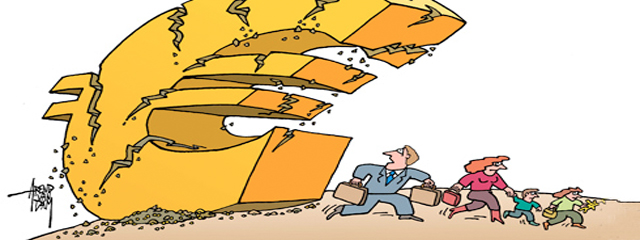You should have seen Mario Draghi’s face last Thursday, when he announced the interest rates cut. It was remarkably different from previous times. Although, it is no wonder taking into consideration the reprimand he must have suffered in the Governing Council of the ECB from Germany and its natural allies, Austria and Holland. They didn’t agree with the measure, what’s more, they might have expressed their desire of an increase in interest rates.
They probably thought they had Mr Draghi under control with the OMT, but then realised he had his own agenda. In case there were any doubts, these countries publicly expressed their rejection to the cut in interest rates, and there has been a veritable witch-hunt in Germany by Werner-Sinn, the main “euro-Taliban.”
This will all result in one thing: Draghi will have his wings cut off for future measures, which is quite serious for a bank that –as well as the FED and Bank of Japan- wants to function with the so-called “Forward Guidance”, i.e. announcing in advance and committing themselves to a particular policy line.
Mario Draghi insinuated that the easing policy would last at least until 2015. So inflation will remain really low until then, but… who will believe this knowing there are a lot of furious detractors behind trying to make him fail?
Europe will not be able to get out of the hole with such travel companions. And the euro will sooner or later suffer the consequences. As Wolfgang Münchau explains:
Is the eurozone different? I do not think so. The ECB has all the tools it needs to fight deflation – even in adverse circumstances. If Germany and the other creditor countries accepted debt write-offs in the periphery, or if they accepted that they, too, have to adjust, or that the banking union has to include some burden sharing, it would help. But even if none of this happens – and I do not think it is going to – monetary policy can still be effective, even in a dysfunctional monetary union. But the policies the ECB would need to deploy would have become progressively more extreme.
What is crystal clear is that, without a release from debts even an inflationary monetary policy would be effective in reducing the real value of the debt. However, that won’t happen.






Be the first to comment on "Mortal Disagreement In and For the Euro"